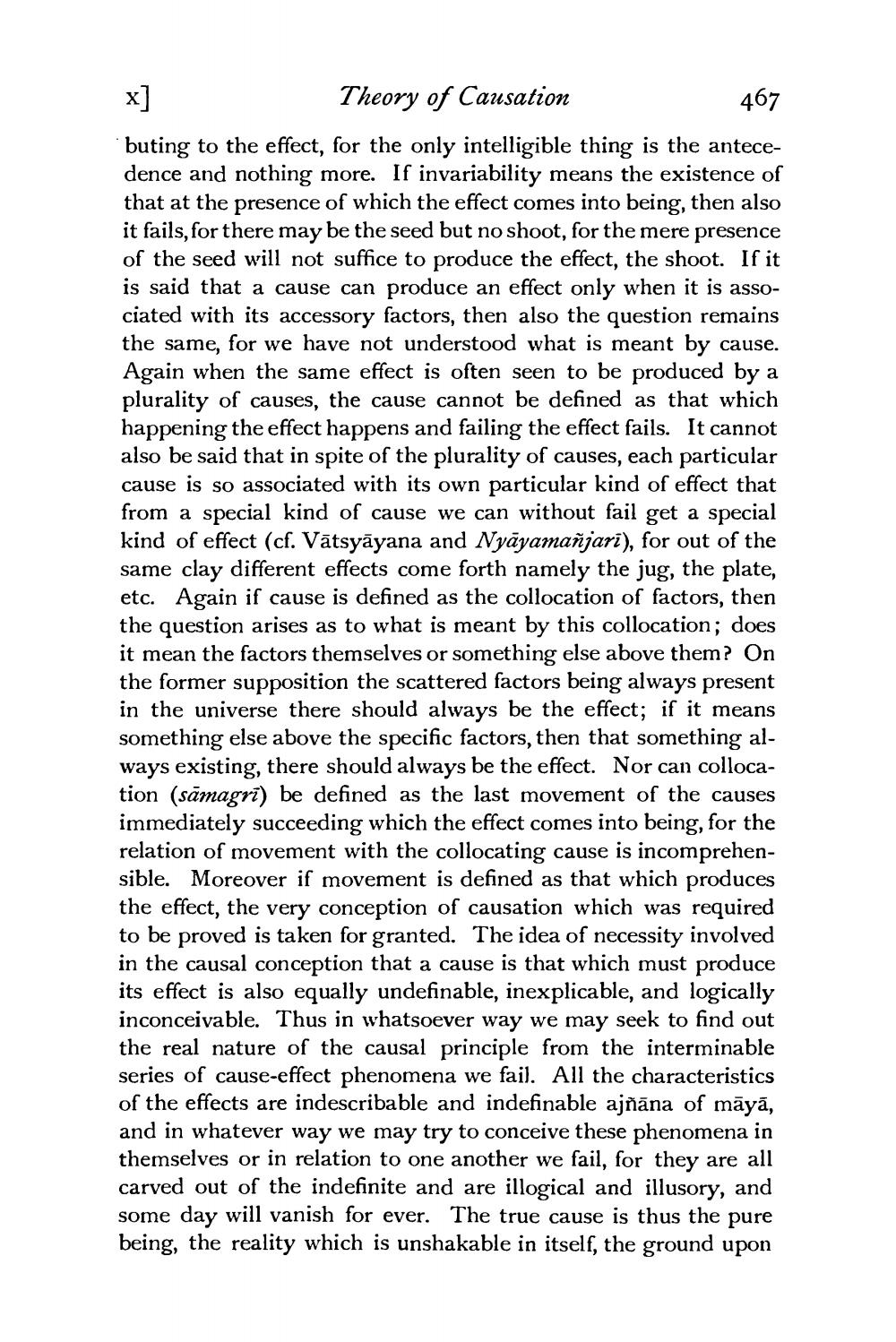________________
x]
Theory of Causation
467
buting to the effect, for the only intelligible thing is the antecedence and nothing more. If invariability means the existence of that at the presence of which the effect comes into being, then also it fails, for there may be the seed but no shoot, for the mere presence of the seed will not suffice to produce the effect, the shoot. If it is said that a cause can produce an effect only when it is associated with its accessory factors, then also the question remains the same, for we have not understood what is meant by cause. Again when the same effect is often seen to be produced by a plurality of causes, the cause cannot be defined as that which happening the effect happens and failing the effect fails. It cannot also be said that in spite of the plurality of causes, each particular cause is so associated with its own particular kind of effect that from a special kind of cause we can without fail get a special kind of effect (cf. Vātsyāyana and Nyāyamañjarī), for out of the same clay different effects come forth namely the jug, the plate, etc. Again if cause is defined as the collocation of factors, then the question arises as to what is meant by this collocation; does it mean the factors themselves or something else above them? On the former supposition the scattered factors being always present in the universe there should always be the effect; if it means something else above the specific factors, then that something always existing, there should always be the effect. Nor can collocation (samagri) be defined as the last movement of the causes immediately succeeding which the effect comes into being, for the relation of movement with the collocating cause is incomprehensible. Moreover if movement is defined as that which produces the effect, the very conception of causation which was required to be proved is taken for granted. The idea of necessity involved in the causal conception that a cause is that which must produce its effect is also equally undefinable, inexplicable, and logically inconceivable. Thus in whatsoever way we may seek to find out the real nature of the causal principle from the interminable series of cause-effect phenomena we fail. All the characteristics of the effects are indescribable and indefinable ajñāna of māyā, and in whatever way we may try to conceive these phenomena in themselves or in relation to one another we fail, for they are all carved out of the indefinite and are illogical and illusory, and some day will vanish for ever. The true cause is thus the pure being, the reality which is unshakable in itself, the ground upon




